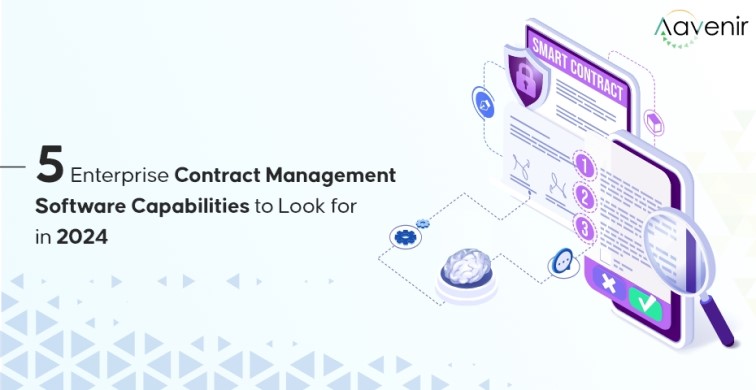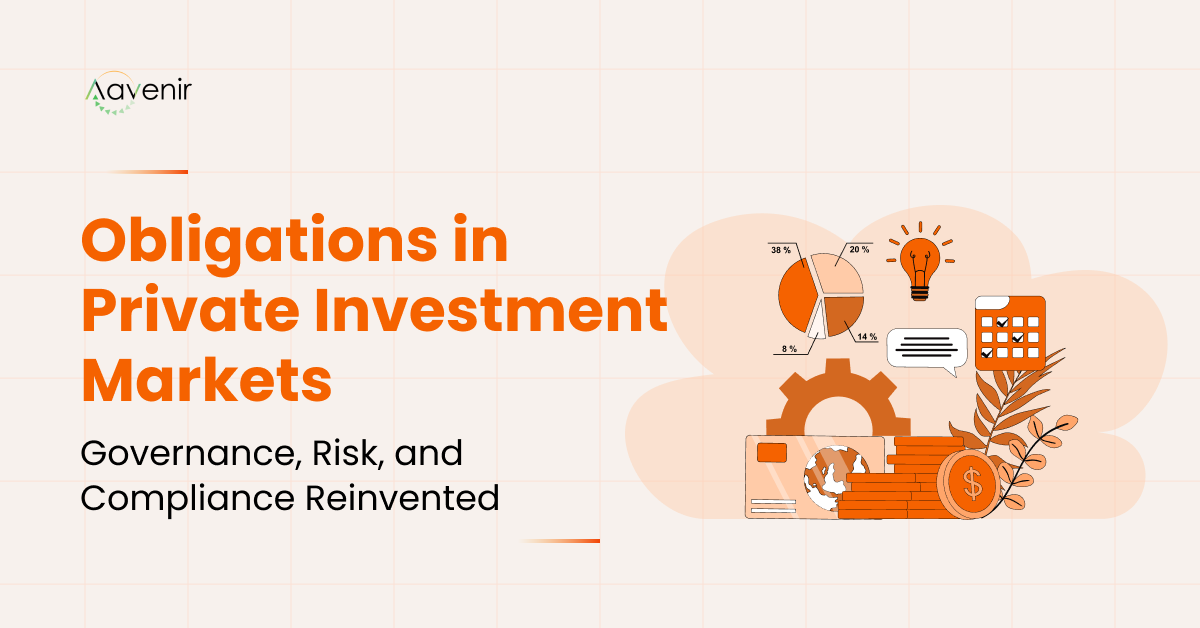In recent years, contract management software has seen a significant transformation due to advancements in technology, global events and volatile market conditions. Global events including the pandemic, the great resignation, rising inflation, wars, and supply chain disruption have all forced innovation and transformation when it comes to contract management processes. There is no sign of a return to more stable conditions. Market conditions will continue to create pressures on contracting relationships. This, in conjunction with technology advancements, will continue to reshape the contract management software capabilities in future.
According to the 2023 World Commerce and Contracting benchmark report, which meticulously analyzed insights from over 750 organizations worldwide:
- 71% of organizations considered improving internal contract management processes is a high priority in 2023, compared to 64% in 2021.
- 58% of organizations considered raising skills of current staff / attracting new talent is a high priority, compared to 51% in 2021.
- 81% of organizations consider the selection and adoption of contracts technology is a top priority, unchanged from 2021.
In 2024, Contract lifecycle management (CLM) software will evolve from a system-of-records process to an enterprise-level operational system-of-actions process, addressing business risk, costs, and the pursuit of revenue maximization. This blog delves into the evolving landscape of contract management software, drawing insights into the latest trends in CLM technology.
Top 5 Enterprise-class Contract Management Software Capabilities 2024
These are the top contract management features to watch out for in 2024 and beyond.
1. AI and Machine Learning Everywhere
Artificial Intelligence (AI) and machine learning are set to play a more significant role in CLM software in 2024. AI has been in place but the latest advancements in AI such as Generative AI, Applied AI, and AI observability will standardize data, automate compliance, and provide total visibility to accelerate the contracting process. As a result, business teams can focus on higher-value tasks and strategic decision-making. Here are a few key use cases for Applied AI in Contract Management.
- AI-enabled Drafting: Traditionally, drafting a contract is a time-consuming process that requires a high level of legal expertise. As per a 2015 IACCM Benchmarking Study from PWC, 80 percent of procurement functions are not fully aware of competitive terms and contract structure. In 2024, CLM solutions will use natural language processing (NLP) and machine learning technologies to extract terms and clauses from third- party paper, legal-approved standard templates, and meritorious legacy contracts for creating clause libraries and legal playbooks. These will be available as AI recommendations while drafting future contracts. Using generative AI, CLM Solutions will also be able to generate fresh new contract templates, clauses, and terms for drafting contracts that are tailored to specific contract types and business use cases. These new capabilities will standardize contract language and reduce contract negotiation time by 40%.
- AI-enabled Review: AI can help identify potential risks, unfavorable terms, and deviations with respect to the most frequently used terms and clauses while reviewing contracts. AI will auto-redline deviations and suggest alternate clauses to automate contract negotiations. AI in CLM software can reduce contract review times by up to 90% and can process thousands of contracts in a matter of hours, a significant improvement over manual review process.
- AI-powered Search: In most organizations, once contracts are signed, they are stored in email inboxes, drives, or in dedicated contract repositories, until, in rare cases, someone needs to recheck the agreement terms. These often lead to missed milestones, resulting in revenue leakage and strained vendor relationships. In 2024, CLM solutions will provide NLP and AI-powered Contract repositories, which will organize contracts in a better way enabling smart, easier, and conversational search capabilities across contracts. AI can analyze critical data points from thousands of active contracts and third-party contracts, making contract monitoring more efficient and error-free.
- AI-enabled Analytics: AI observability will enhance predictive analytics, helping organizations better understand contract performance, obligations, and risks. By harnessing AI, legal departments can foresee potential disputes and identify opportunities for cost savings. The adoption of natural language processing (NLP) in contract analysis is expected to grow by over 70% by 2024.
- AI-assistance: AI powered conversational assistants will answer any question related to contracts stored in CLM solution, simplify clauses, generate contract summaries and recommend alternate clauses.
- AI-powered Contract Obligation Compliance: Real-time monitoring of contract performance is a priority for 85% of organizations. AI based obligation extraction and fulfillment helps businesses check contracts for compliance against SLAs, GDPR, HIPAA, ESG compliant clauses (defined in ITSM, GRC or 3rd party ESG management solutions) and more. Generative AI will also suggest clauses and verbiage to make contracts compliant. Automation can reduce time spent on compliance reporting by up to 70%. By 2024, most CLM solutions will offer automated compliance reporting features.
Want to learn how Aavenir AI extracts, transforms, and analyzes critical contractual data from your complex and lengthy contract document like humans?
2. Data Security and Compliance
As per the 2023 World Commerce and Contracting benchmark report, the primary challenges to acquire contract management software including obtaining budget (61% compared to 62% in 2021) and building consensus across stakeholders (55% compared to 59%) has decreased. However, concerns about data security are now seen as a major barrier to adopt CLM technology by 42%, the increase in this barrier perhaps reflects the broader issues associated with the incorporation of artificial intelligence into many systems.
In 2024, Data security and privacy will be critical concerns while implementing contract management software, given the sensitive nature of legal documents and client information. CLM software will continue to ensure and enhance data security as well as compliance with evolving data protection regulations, such as GDPR and CCPA.
- AI-Data Protection: In 2024, over 90% of CLM software solutions will offer advanced encryption and multi-factor authentication to protect sensitive contract data. Purpose-built AI engines for built and trained for each customer of CLM software to safeguard large volume of contract data. Personalized AI-engine will provide highly accurate and business case relevant AI recommendations.
- Audit trails: Advanced CLM solutions will provide a detailed history of each contract enabling business teams to track and monitor all activities related to contracts, allowing the company to efficiently manage accountability and compliance during regulatory inspections, and avoid penalties and costly delays.
- Privacy: CLM solutions will ensure that once a contract is created, it cannot be viewed, altered or tampered with, providing secure and immutable contract transactions. This will be particularly valuable in industries where trust and transparency are paramount, such as real estate and finance.
3. Connectivity with Enterprise Applications
From large to mid-size and even smaller enterprises are recognizing the importance of CLM integrated solutions and connected contract data. 2024 will see an increase in such CLM solution integration initiatives.
- Integration of E-signature – Digital Signature adoption grew by 60% in 2020 due to the COVID-19 pandemic, and the trend is set to continue in 2024, making it easier for parties to execute contracts remotely. This not only saves time but also reduces the need for physical paperwork, benefiting the environment and contributing to a more sustainable approach to contract management. In 2024, 85% of CLM software users are expected to leverage integrated e-signature solutions, reducing contract execution time by an average of 70%.
- Integration of Legal Services Delivery (LSD): Contract Lifecycle Management integrated with Legal Service Delivery automation, the combined stack becomes a potent game-changer for legal operations and a huge step toward legal tech transformation. Imagine a request coming into legal for drafting a new contract. Such requests would be routed through the Legal Service Delivery ticket mechanism. Upon receiving the ticket, legal ops or the Contract Management team could respond to the request by creating the appropriate contract in the CLM tool. Similarly, legal service requests for matter management or investigations that require rapid scanning and understanding of contract data will benefit immensely from a tight integration between Legal Service Delivery and Contract Management. 2024 will see an increase in such integration initiatives.
- Integration of Source-to-Pay (S2P) Operations: CLM connected SPO (Sourcing and Procurement Operations) will enable smooth contract intake, review, and signature. CLM will also connect with Risk Management solutions like VRM to monitor supplier risk and performance against SLA’s, GRC solutions to monitor compliance and fulfillment for various Risk, ESG compliances, and Security initiatives undertaken by the company.
- Integration of Supply Chain Management (SCM): Integration of CLM solutions to SCM solutions makes it easy to draft, review, negotiate, e-sign, and execute contracts, and drive suppl-chain contract compliance. CLM connected supply chain management solution will increase transparency and control over supplier’s contractual commitments. CLM connected SCM solution will provide a holistic view of contractual obligations such as contract terms, delivery schedules, and quality standards. This transparency empowers supply chain professionals to proactively identify underperforming suppliers, reduces instances of non-compliance, reduce supply chain disruptions by ~15% and enforce on–time delivery rates.
4. Workflow Automation
Collaboration and workflow automation will remain at the forefront of CLM technology. Contract Managers often work collaboratively with business functions on contracts, and the latest technology platforms will continue to facilitate this process. In 2024, CLM software will offer advanced collaboration features that will streamline the entire contract lifecycle, from initiation to renewal.
- Contract Lifecycle Automation and Collaboration: CLM solutions will offer configurable and dynamic workflow capabilities, allowing teams to automatically route contracts through relevant employees based on contract type, vendor type, and other conditional, rule-based approaches. AI-enabled workflows will automate review and approval for various AI-generated clauses and recommendations. In 2024, business functions will collaborate real-time to author and review contracts, provide feedback, and track changes. In 2024, workflow automation in CLM software will further reduce bottlenecks by up to 80%, leading to more streamlined contract lifecycles.
- Automated Alerts and Notifications: CLM software will automate reminders for not only key contract milestones, such as renewals and terminations, but also for contract obligations, reducing the risk of missing crucial dates and compliances.
Want to learn how Aavenir Contractflow can help you expedite the contract review and negotiation process for the quickest contract approval time possible?
5. Flexibility, User-Friendliness and Scalability
Every organization has unique contract management needs. In 2024, CLM software solutions will provide greater customization options, enabling greater enterprise-wide adoption by tailoring the system to their specific requirements. CLM software will offer more user-friendly interfaces that require minimal training. Scalability will also be a focus, ensuring that CLM solutions can grow with organizations as their contract management needs evolve.
- Personalization: CLM software will increasingly offer customization options. Whether it’s the structure of contract templates or the configuration of approval workflows, CLM software will be highly adaptable. Users can personalize their dashboards, workflows, and notifications to align with their specific needs and preferences.
- Chatbot: Real-time AI-enabled help chatbot, will enable users to navigate the system with ease, reducing the learning curve. Shared workspaces and commenting within the platform will enable more efficient communication between stakeholders involved in the contract process.
- Mobile Accessibility: Contract managers need to access and execute contracts on the go, so CLM software will be designed with responsive web interfaces and dedicated mobile apps. By 2024, more than 75% of legal professionals will access CLM software through mobile apps, allowing them to manage contracts on the go, improving overall productivity. rend #5 CLM solution integrations and customizations.
Closing Notes
As we approach 2024, the contract lifecycle management software landscape is set to undergo significant transformations. AI and machine learning, blockchain technology, data security, e-signatures, collaboration tools, customization, and mobile accessibility are all key trends shaping the future of CLM technology. Legal professionals and organizations that embrace these trends will gain a competitive edge in managing their contracts more efficiently, securely, and transparently. It’s evident that the legal industry is moving towards a more tech-savvy and streamlined future, making contract management an integral part of the digital transformation journey.





